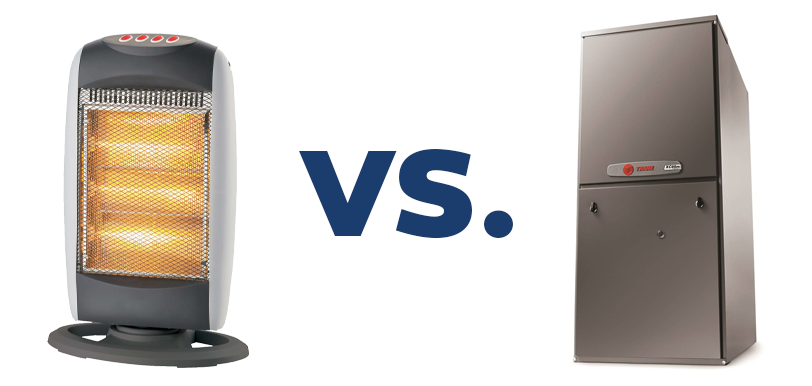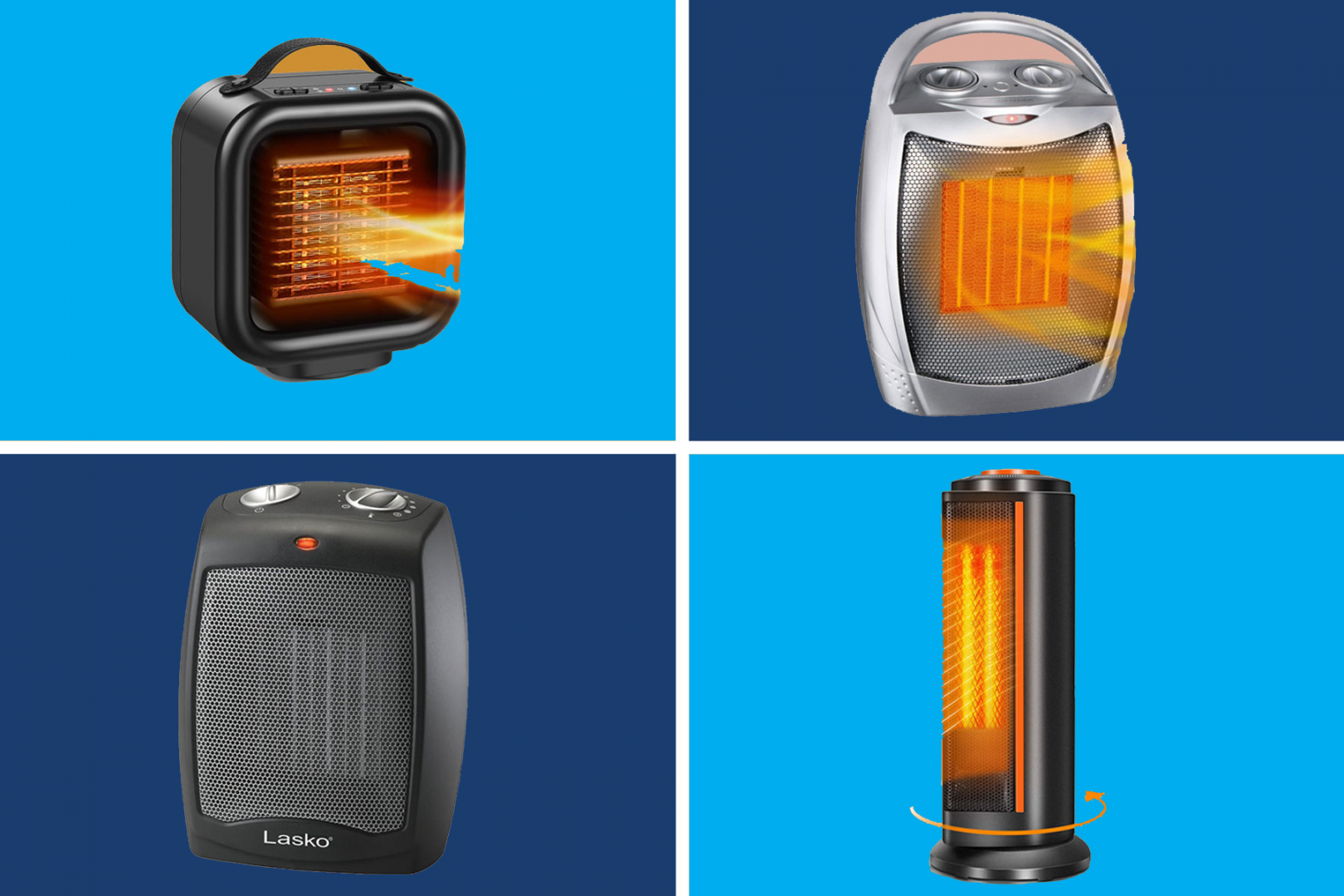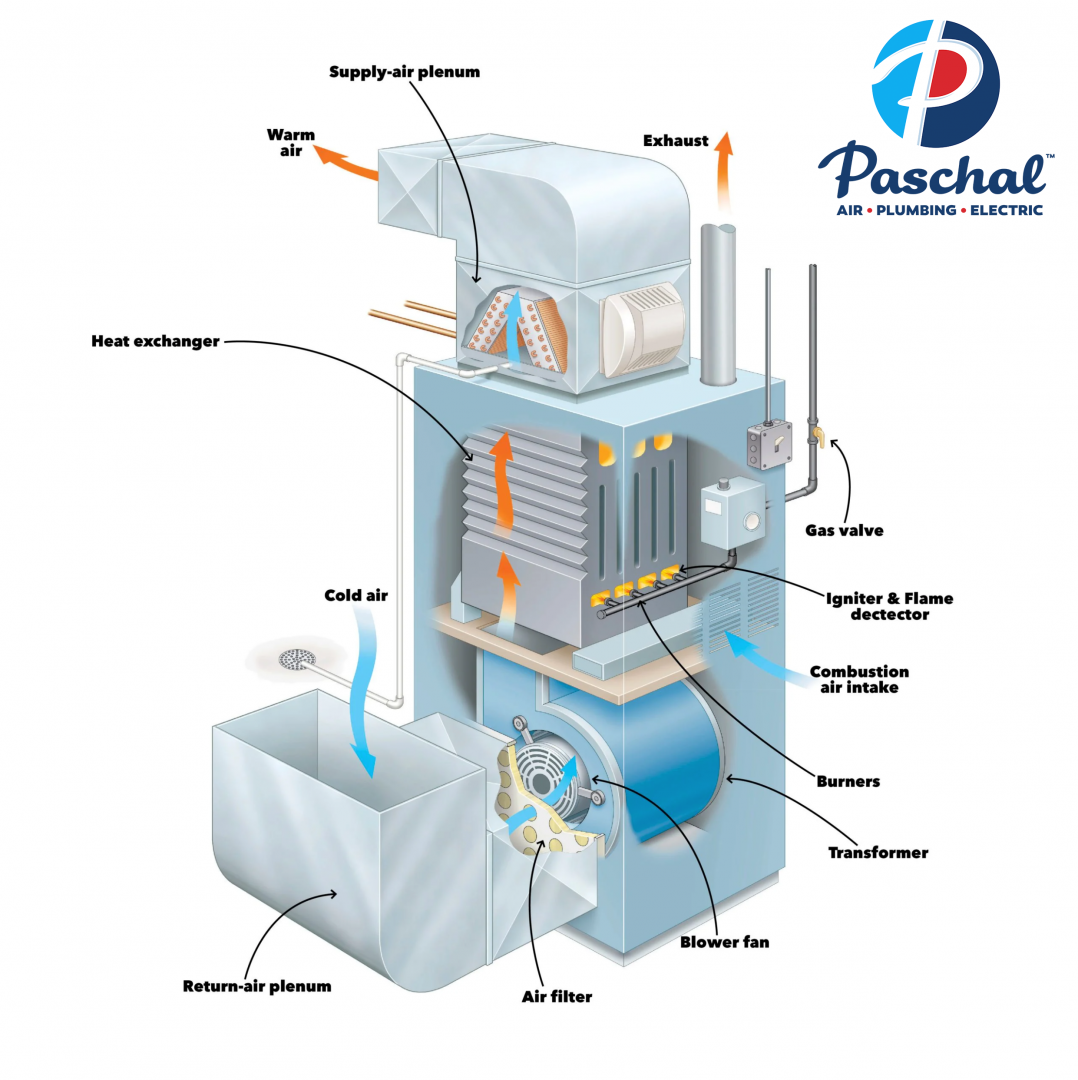Want to save with Paschal? Don’t miss our current offers and specials

Want to save with Paschal? Don’t miss our current offers and specials
Return to Paschal Resource & Education Hub

You know that winter is coming when all of the big box stores start filling shelves with space heaters. Often touted as an amazing machine capable of turning rooms into large toaster ovens, space heaters are a quick, down & dirty method of providing heat to a cold room. What is it that causes so much demand around these devices, and are they really better at heating a room than a central HVAC system?
According to the Department of Energy, space heaters are typically used when a home’s HVAC system is either inadequate or when central heating is too costly to install or operate. In some cases, small space heaters can be less expensive to use if you only want to heat one room or to run for short periods of time. They commonly run on either electricity, or some sort of fuel. Although most space heaters work by convection, some may rely on what is called radiant heating. Radiant heaters are a more efficient choice when you will be in a room for only a few hours and can stay within the line of sight of the heater.
Safety is a top consideration when using space heaters. The U.S. Consumer Product Safety Commission estimates that more than 25,000 residential fires every year are associated with the use of space heaters, resulting in more than 300 deaths. In addition, an estimated 6,000 people receive hospital emergency room care for burn injuries associated with contacting the hot surfaces of room heaters, mostly in non-fire situations.
Electric space heaters are generally more expensive to operate than combustion (fuel) space heaters, but they are the only unvented space heaters that are safe to operate inside your home. Although electric space heaters avoid indoor air quality concerns, they still pose burn and fire hazards and should be used with caution. For convection (non-radiant) space heaters, the best types incorporate a heat transfer liquid, such as oil, that is heated by the electric element. The heat transfer fluid provides some heat storage, allowing the heater to cycle less and to provide a more constant heat source.

Where you live in this country largely determines what type of equipment is used to heat your home. in Northwest Arkansas, Southwest Missouri & especially in the Midwest/South we use gas furnaces, however many municipalities, such as Bella Vista & other areas use heat pumps. Other regions may use all electric heat pumps, boilers, or oil based heaters. If you have gas utilities in your municipality, then you will more than likely have a gas furnace installed in your home. These furnaces typically remain unused for half of the year, while the outdoor condensing unit and air handler handle all of your home’s cooling in the summer.
The heat capacity of a gas furnace is measured in British Thermal Units (BTUs). A BTU equals the amount of heat required to raise the temperature of one pound of water one degree Fahrenheit. Ironically, the BTU is rarely used in Great Britain because it is a non-metric measurement. The higher the BTU output, the more powerful the gas heating system. In real world terms, the energy released by one burning match is approximately equal to one BTU. So now you understand why it requires thousands of BTUs to heat a typical home.

Heat pumps are innovative pieces of technology that both heat & cool your home using the same equipment. Heat Pumps do not use a furnace to heat your home, but instead utilize the outdoor condensing unit and an indoor air handler – all using electricity! There are many debates on whether heat pumps are more efficient at heating a home than gas furnaces or boilers. In its simplest form, heat pumps use electricity and refrigerant to move heat from one location to another.
To provide heat, a heat pump works by extracting heat from the air outside of your home and transferring it to refrigeration coolant – the coolant is then compressed, which increases the temperature significantly; the coolant is then moved to the indoor unit of the heat pump, which then passes air over the hot coolant, increasing its temperature to accommodate the thermostatic call for heat inside the home. Air source heat pumps move heat between the air inside a home and the air outside a home, while ground source heat pumps (known as geothermal heat pumps) transfer heat between the air inside a home and the ground outside a home.
One thing to note is that heat pumps do not create heat – they simply move it from one area to another. A furnace creates heat that is distributed throughout a home, but a heat pump absorbs heat energy from the outside air (even in cold temperatures) and transfers it to the indoor air. When in cooling mode a heat pump and an air conditioner are functionally identical, absorbing heat from the indoor air and releasing it through the outdoor unit.
Heat pumps are incredibly efficient in both warm and cold weather. A heat pump works best when the temperature is above 40. Once outdoor temperatures drop to 40 degrees, heat pumps start losing efficiency, and they consume more energy to do their jobs. When temperatures fall to 25 to 30 degrees, a heat pump loses its spot as the most efficient heating option.

Generally, if you are only heating one or two rooms, ductless mini split systems are the more efficient option. For scenarios in which it is cost prohibitive to install new ductwork or central air, and risk-averse to use space heaters, mini splits shine through as the best option. Ductless air conditioners, also called “mini splits” work similarly to heat pumps, in that they are all-electric, and do not need existing or new ductwork to be installed. Many homeowners consider these systems when building new additions within their home, or when some rooms do not get cold or hot enough. Small in size, these systems not only cost significantly less than traditional AC systems, they cost less to operate and incur lower cooling loss. Over the past few years, these systems have skyrocketed in popularity and we don’t see that slowing down anytime soon. Since mini-splits have no ducts, they avoid the energy losses associated with ductwork of central forced air systems.
Are you considering replacing your current furnace or heat pump? Our certified comfort specialists are available to walk you through all of the available options. Give us a call today at 479-751-0195 to learn more & schedule a free quote for a new system.